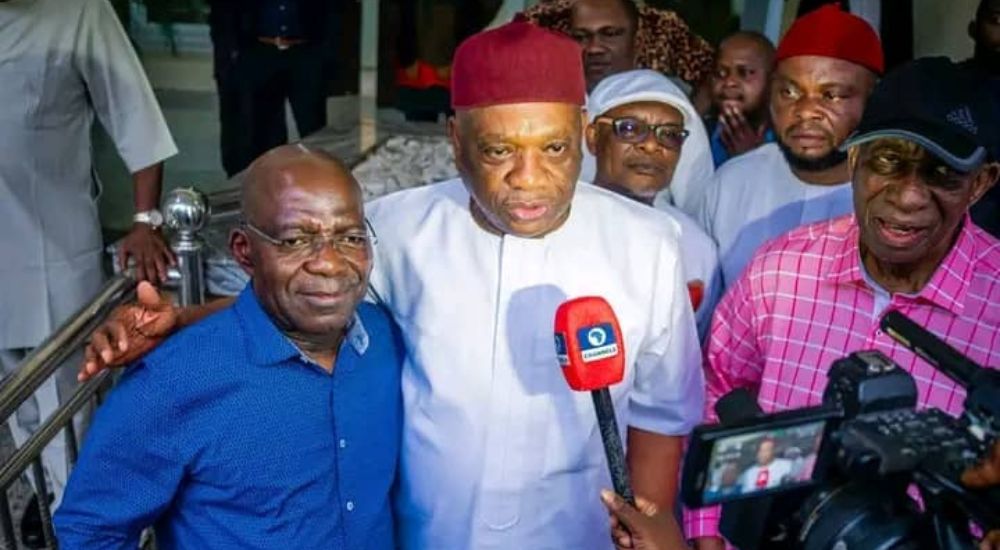Tinubu’s Reforms Vital But Insufficient To Grow Economy— Rewane

The Chief Executive Officer of Financial Derivatives Company, Bismarck Rewane, has urged the federal government to adopt a pragmatic, balanced approach to managing the country’s fragile economy.
Speaking in a television interview, Rewane stressed that while President Bola Tinubu’s reform measures such as fuel subsidy removal and currency realignment are necessary, they are not enough to stabilize the economy in the long term.
“We must stop looking backwards,” Rewane said. “What was appropriate in 2023 may not suffice for 2025.”
Rewane cautioned against drastic cuts to government spending, calling for a focus on expenditure optimization.
“Cutting expenditure is not the same as optimizing it,” he said, adding that there are numerous leakages at both state and federal levels that diminish the impact of public investment.
He likened sudden austerity to asking “a man with an ulcer to go on a fasting mission,” emphasising that strategic spending remains essential for growth.
While rejecting unchecked government spending, Rewane warned that avoiding expenditure cuts should not translate to fiscal recklessness. “We must optimise expenditure, not spend like drunken sailors,” he said.
The economist also raised concerns about insecurity in oil-producing regions, which he described as a persistent drag on Nigeria’s economic performance. Without resolving these security issues, oil production—the country’s primary revenue source—will continue to underperform, undermining fiscal recovery efforts.
On inflation, Rewane offered a less pessimistic view than the IMF, forecasting a rise to between 25 and 27 percent, compared to the IMF’s projections of 30 per cent in 2025 and 37 per cent in 2026.
He explained that the current liquidity in the financial system could compel the Central Bank of Nigeria to maintain or even hike interest rates to manage inflation expectations.
Rewane also criticised recent decisions by the Debt Management Office (DMO) to reduce bond issuance from ₦1.8trn in the first quarter of 2025 to ₦1.2trn in the second.
He described the move as counterproductive, saying that increased bond issuance is essential for mopping up excess liquidity and controlling inflation.
Commenting on Nigeria’s oil export pricing, Rewane highlighted the undervaluation of crude sales, stating, “We sell for 70 cents, while our neighbours get $1.20. How long can this go on?”
While acknowledging the positive impact of the Dangote Refinery on local fuel prices, he warned that plans by the Organisation of Petroleum Exporting Countries (OPEC) to increase output could depress global oil prices further.
On the international front, Rewane addressed global economic volatility, including potential tariff reductions by the United States on Chinese goods under former President Donald Trump.
He suggested that while such a move may offer short-term relief, broader uncertainty will likely persist. Nonetheless, he predicted some economic stability between May and June, adding that any global recession would likely be “mild, not deep.”
Rewane called for fiscal discipline and strategic borrowing. “These are serious times, and we must respond with serious adjustments,” he said, urging policymakers to close Nigeria’s fiscal gap through reduced leakages and consolidated public spending.
Tinubu’s Reforms Vital But Insufficient To Grow Economy— Rewane is first published on The Whistler Newspaper



